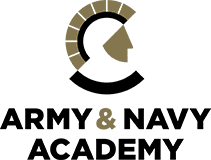Read here to understand how and why private education could be better than public school for your child. It is vital to weigh all the variables when selecting the best educational option, so check out the things that private schools may offer that public schools do not have. Also, check the frequently asked questions to address some of your questions or concerns.
What Do Private Schools Offer that Public Schools Don’t
- Small classes offering individualized support – Typically when families consider a private school vs. public school, it is largely because they feel their child would do better in smaller classes. Small classes generally mean there will be a higher level of individualized attention. According to the National Center for Education Statistics (NCES), specialized departmental instruction class sizes can be quite high. For example, in Washington and Wisconsin, the classes can have over 35 students and in Nevada, they can be as high as 54.
- Academic freedom to offer innovative methods and classes – Unlike public schools, private schools comply with rigorous standards to maintain accreditation whereas public schools must follow district policies. Private schools often have greater freedom and exercise it in their curriculum, electives, and special programs. For instance, they may provide interactive, hands-on, or research-based methodologies. They also are able to offer visual and performing arts and unique electives in career-related areas: computer science, cyber security, aviation, leadership/management, and other areas.
- Dedicated and caring faculty elevate motivation – Private schools tend to attract and employ teachers with expertise and/or graduate degrees in their subject area. Although public schools nationwide are statistically higher in terms of graduate degrees, it all depends on the caliber of the private school. If the private school is in the top 20%, they most likely require graduate degrees and/or credentials. At top private schools, faculty might also have specific professional expertise in their field (e.g. scientific research studies, published authors, professional artists, aviators, computer scientists). This tends to lead to higher motivation and also helps students determine where they will go to college, their college major, and even their career direction.
- Small case loads for academic counselors. Counselors at private vs. public schools typically have much smaller student loads to manage and this helps them provide robust college planning services, academic scheduling, and social/emotional support. At some public schools, counselors have their hands full with just scheduling, whereas, at most private schools, each counselor has a personal connection to students for scheduling, college planning, and support.
- Amenities and special services. Private schools may offer amenities you will not find at public schools, such as: student enrichment centers, recreation halls, swimming pools, tennis courts, health centers, security department, IT department, and nutritious meal options. Also, private boarding schools offer dormitories, weekend activities, trips in the U.S. and abroad, internship programs, and transportation to activities and appointments. They could even offer beach access and surfing!
Private Schools – Frequently Asked Questions
- What are the pros and cons of private school? Many of the pros have been covered in the top 5 points above, but also consider other aspects of your child’s development. Private school can offer some advantages to establish life habits that could lead to college admission as well as higher paying careers, character development, and leadership skills. On the other hand, you may be wondering about the cons. The cons of private school could be enrolling in a school that does not match your child’s needs or expectations. To avoid lackluster outcomes, ensure you do your research and disclose your expectations to the admission office at the outset to find the right private school.
- Are classes smaller at most private schools? According to a U.S. News research “NCES data indicates that the average private school has about 166 students, while the average public school has about 526. For more detailed information based on state and class type, please refer to NCES data.
- Do private schools offer more honors or Advanced Placement classes? Every school is different, but most private schools offer high-achieving students rigorous academic options, including Advanced Placement (AP) and honors classes. These classes can definitely provide an edge to gain admission to top universities. In addition, private schools offer a level of support you may not find in public schools to do well in these challenging classes.
- Are private schools worth the cost? When you weigh the many benefits in preparing for college, getting into a college of choice, and opportunities for scholarships, you may find the investment is well worth it. Add the friendships, critical life skills, growth mindset, and career development, the return-on-investment expands even further.
- How do I find a private high school near me with the best outcomes? Great resources include: Private School Review, Boarding School Review, Niche, and Great Schools. These are all websites that provide overviews, data, reviews, and ranking information for ease in comparing schools.
- What are some of the top private schools? Check the scores and rankings on the various sites mentioned above. Niche ranks schools with a grade, whereas Great Schools and other sites may use stars or percentages. Private School Review allows you to compare schools at a glance and also ranks schools in the top 20% by city, state, and other metrics. For example, in San Diego County, California, you will see schools such as: Army & Navy Academy, Pacific Ridge, Francis Parker, La Jolla Country Day, The Bishop’s School, San Diego Jewish Academy, and others.
- Do private schools offer financial assistance? Don’t be deterred by the tuition posted on websites, as the majority of private schools offer need-based financial assistance. They may prioritize returning students and/or view other criteria, but they employ best practices to assess the level of need. Also, bear in mind that schools consider income, but also factors such as the number of students in college or private school. They also might offer discounts for siblings, alumni, and veterans.
- Do students from private schools score higher on standardized tests? The National Association of Independent Schools (NAIS) data shows students in private schools tend to perform better than public school students in all subject areas on the SAT and other exams. There are a number of reasons why this is the case, but it is something worth considering.
- Does single gender make private schools worth it? This is a reason why more families are choosing private schools. If you think your son or daughter can benefit from a focus on how boys and girls learn, a private school can really set your child up for greater success. There is some compelling research that supports the use of different methods for boys and girls.
- Is a private boarding school better than a private day school? Statistics from the Association of Boarding Schools (TABS) show some advantages of boarding schools in terms of college matriculation, graduate school, careers, and income. If parents are both working professionals, private boarding schools do offer some other pluses as they address transportation to sports activities, and appointments, as well as provide meals, study support, and health services. They also provide a high level of guidance and mentorship around the clock.
- Do private military schools make a difference for teens? Most military schools are college prep private schools and many operate as nonprofits. Nonprofit status does not mean they are low-cost or free, but tuition helps them cover operational costs. When researching, keep in mind, they are often referred to as military academies. While a small percentage of graduates may enlist, apply to the service academies like West Point, or ROTC universities, most of their graduates matriculate to public and private colleges and universities. Military academies often have notable alumni working in STEM related careers, government, diplomacy, business, finance, medicine, law, and other fields.
- Are private schools a better option for students with learning differences? When thinking about public vs. private schools, be aware of the programs and how they differ. According to a U.S. News report, “Federal law requires public school districts to provide services to any student suspected of having a disability. Under the law, children can undergo screening and evaluation, at public expense, to determine eligibility for specialized instruction and support.” By contrast, private schools may determine the types of support programs and classes they can offer. Some private schools specialize in working with students with learning differences, whereas others may have a class or program. Also, bear in mind that some private schools do not offer programs and/or may not be equipped to address your child’s needs. This is why it is best to be transparent about 504 or IEP plans your child might have received in the past. In addition, ask whether the school is geared more to mild, moderate, or severe to ensure your child will get the support needed.
- Are private schools helpful with ADD or ADHD? Some schools do a great job addressing ADD and ADHD and this will not be a barrier to admission. In addition, they could also do well with students with dyslexia, dysgraphia, auditory processing, or other learning differences. Contact them to find out more.
- Are there faith-based private schools? When you weigh public school vs. private school, one of your considerations could be religious studies and value systems. There are private schools for almost every faith. Bear in mind that most non denominational private schools have a strong value system, and may offer character development programs.
- Do private schools offer ESL or ESOL for international students? Both public and private schools offer programs for speakers of other languages. Some private schools may not accept students unless they are highly proficient in English; however, there are some private boarding schools that do accommodate students at different levels. In fact, many military boarding schools offer ESL or ESOL for beginners, intermediates, or advanced students. Military Academies in the U.S. include: Admiral Farragut, Army & Navy Academy, Camden Military Academy, Culver Academies, Fishburne Military School, Marine Military Academy, Massanutten Military Academy, Missouri Military Academy, St John’s Northwestern, Riverside Military Academy, Randolph Macon Academy, and Valley Forge Military Academy. In addition, there are other traditional boarding schools that offer programs for international students: including: Besant Hill, Southwestern Academy, Trinity-Pawling (all boys), Robert Land Academy (all boys) and many others listed on Boarding School Review.
When weighing whether to enroll your child in a public vs. a private school, there are a number of considerations. First, think about what your daughter or son needs to set her/him up for the greatest level of success. If you think a private education could be better than public education for your child, then contact some private schools to ask more detailed questions and schedule a campus appointment.



